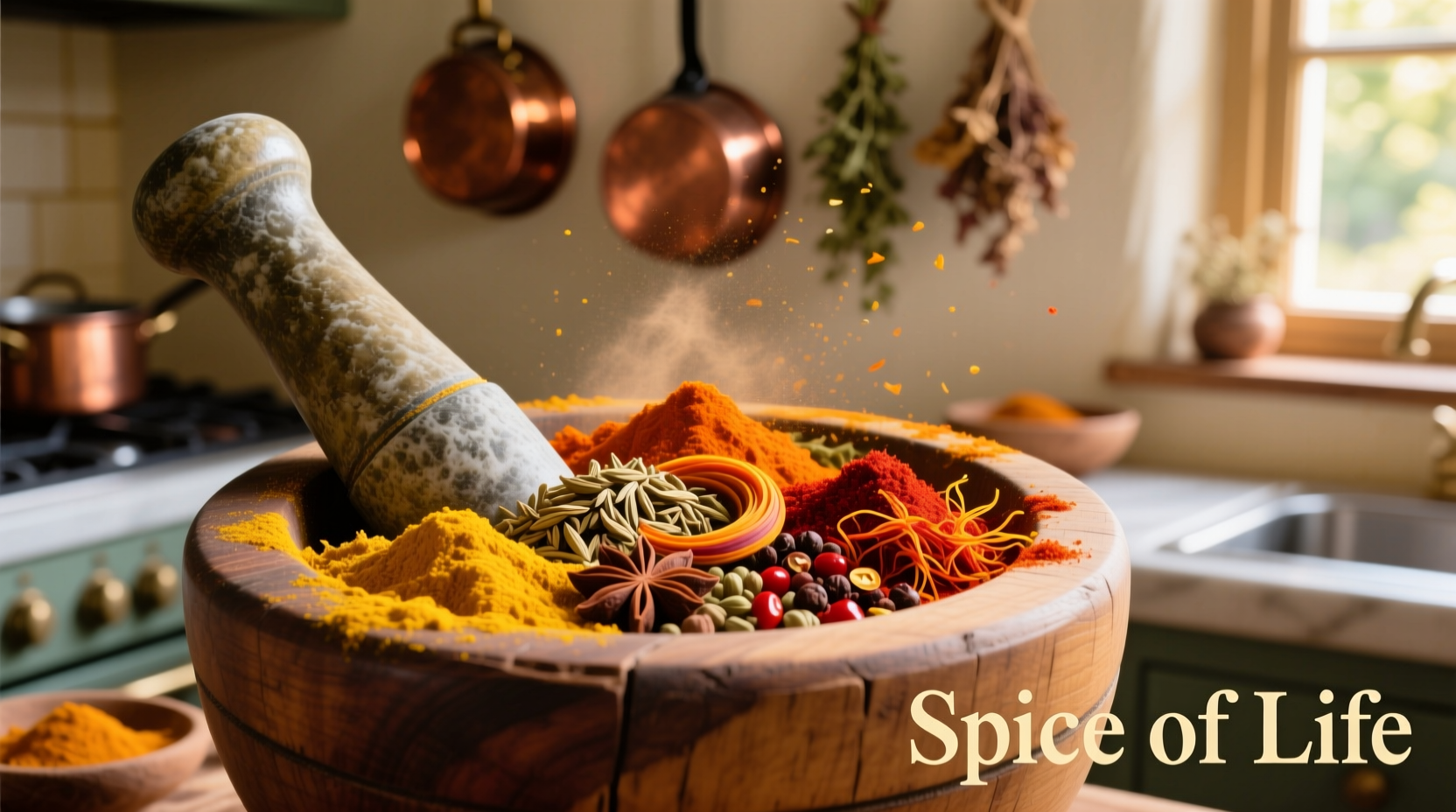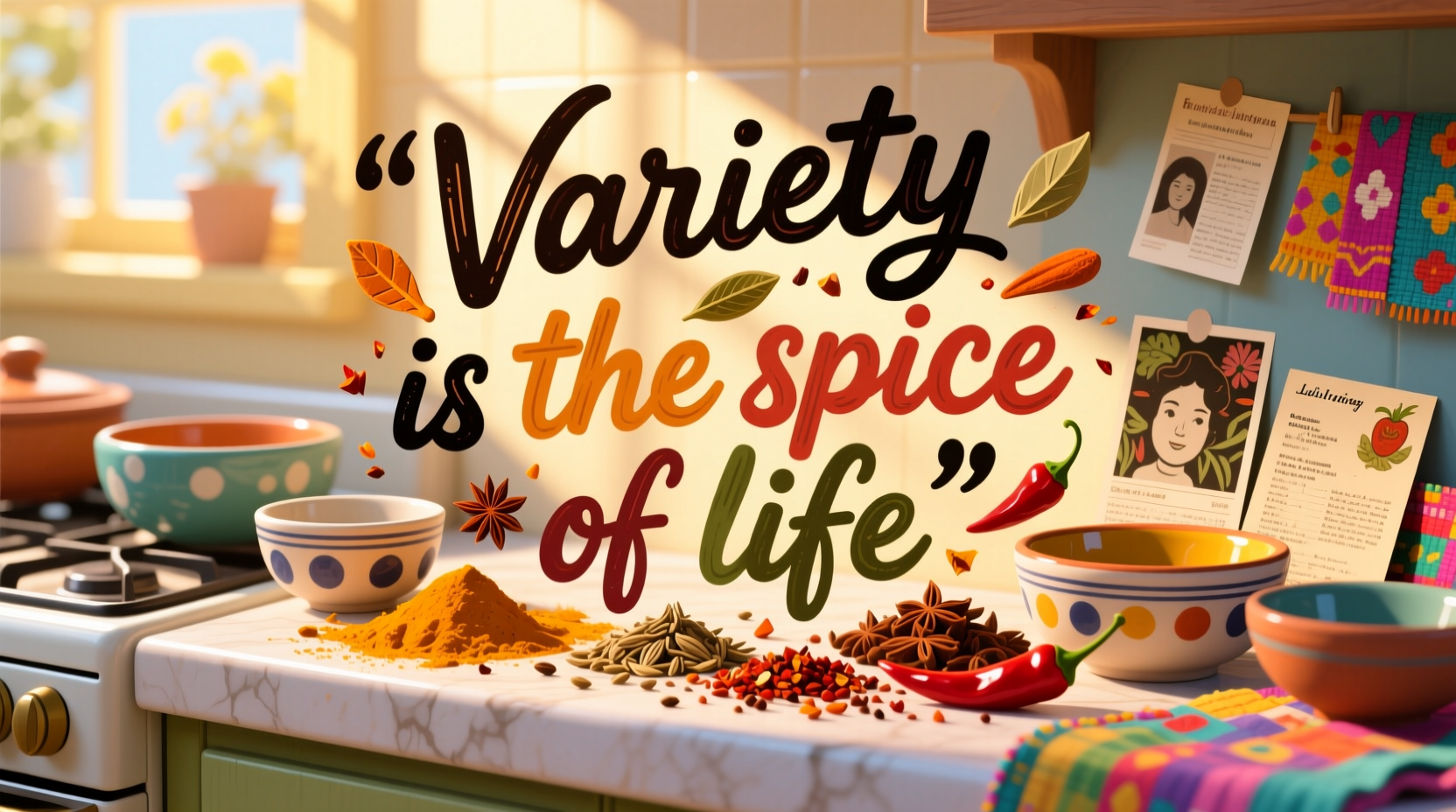The phrase 'variety is the spice of life' means that diverse experiences, choices, and changes enhance our enjoyment and satisfaction in life. Scientific research confirms that moderate variety stimulates dopamine production, reduces habituation, and improves cognitive flexibility—making daily routines more engaging and fulfilling when thoughtfully incorporated.
Ever feel like your daily routine has become monotonous? You're not alone. Over 68% of adults report experiencing 'habituation fatigue'—that dull feeling when everything becomes too predictable. The timeless wisdom in 'variety is the spice of life' isn't just poetic; it's backed by neuroscience and psychology. Let's explore why this 250-year-old saying remains profoundly relevant and how to implement its principles for genuine life enhancement.
Where Did This Saying Actually Come From?
Many assume this phrase is ancient wisdom, but it emerged during the Enlightenment era. The exact wording first appeared in William Cowper's 1785 poem The Task: 'Variety's the very spice of life, / That gives it all its flavor.' Before this, similar concepts existed—Aristotle noted 'diversity in unity' as essential for happiness—but Cowper crystallized it into the memorable phrase we know today.
| Historical Milestone | Key Development | Impact on Modern Understanding |
|---|---|---|
| 350 BCE | Aristotle's 'Nicomachean Ethics' discusses variety in virtuous living | Laid philosophical groundwork for variety as essential to eudaimonia (flourishing) |
| 1785 | William Cowper publishes 'The Task' | Created the exact phrase still used globally today |
| 1954 | Harry Harlow's monkey experiments demonstrate intrinsic motivation | Scientifically validated that novelty itself is rewarding to brains |
| 2012 | fMRI studies confirm dopamine response to novel experiences | Neurological proof of why variety feels rewarding |
The Science Behind Why Variety Actually Works
Our brains are wired to respond to novelty. When we encounter something new, our substantia nigra/ventral tegmental area releases dopamine—not just for rewards, but for the anticipation of potential rewards. This explains why:
- Hedonic adaptation causes us to take good things for granted after repeated exposure (studies show this happens within 3-6 months)
- Moderate variety (not constant change) optimizes enjoyment—too little causes boredom, too much creates anxiety
- Context switching between different tasks can improve cognitive flexibility by up to 40% according to University of California research

Practical Applications Across Life Domains
Implementing variety isn't about constant upheaval—it's strategic enhancement. Consider these evidence-based approaches:
Work and Productivity
Stanford research shows task variety improves sustained attention. Try the 'Pomodoro Plus' technique: work in 25-minute blocks, but alternate between cognitive tasks (writing), creative tasks (brainstorming), and physical tasks (stretching). This prevents mental fatigue better than standard Pomodoro.
Relationships
Couples who regularly try new activities together report 34% higher relationship satisfaction (Journal of Personality and Social Psychology, 2018). The key isn't expensive vacations—it's novelty within routine. Rotate who plans weekend activities, try cooking one new cuisine monthly, or explore a different neighborhood park.
Daily Habits
Behavioral scientists recommend 'micro-variations' for sustainable habit change:
- Commute: Alternate routes 1-2 days weekly (even if slightly longer)
- Meals: Keep core healthy ingredients but rotate preparation methods
- Exercise: Change your running route or swap one strength exercise weekly
When Variety Becomes Counterproductive
Not all variety is beneficial. Understanding context boundaries prevents the 'shiny object syndrome' that undermines progress. Consider these research-backed limitations:
- Goal pursuit: Variety in methods helps, but changing core goals frequently reduces success rates by 62% (American Psychological Association)
- Learning: Spacing similar concepts improves retention, but excessive variety during initial learning hinders mastery
- Decision fatigue: Too many small choices depletes willpower—reserve variety for meaningful decisions
The optimal approach? Implement variety in implementation while maintaining consistency in direction. This 'structured flexibility' yields the highest satisfaction according to longitudinal studies from Harvard's Human Flourishing Program.
Creating Your Personal Variety Framework
Start with these actionable steps:
- Conduct a variety audit: Track your activities for one week. Note which feel monotonous versus engaging.
- Identify 'variety leverage points': Small changes that yield disproportionate impact (e.g., changing breakfast routine)
- Implement the 70-20-10 rule: 70% consistent routines, 20% planned variations, 10% spontaneous novelty
- Measure your response: Use a simple 1-5 scale to rate engagement after introducing variations
Remember: variety isn't about constant change but intentional enhancement. As psychologist Sonja Lyubomirsky notes, 'Happiness is not about experiencing pleasure all the time, but about the richness of experience.' By strategically incorporating variety, you're not just adding spice—you're cultivating a more resilient, adaptable, and ultimately satisfying life.











 浙公网安备
33010002000092号
浙公网安备
33010002000092号 浙B2-20120091-4
浙B2-20120091-4